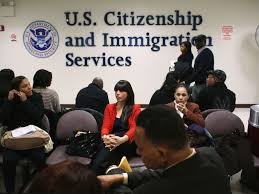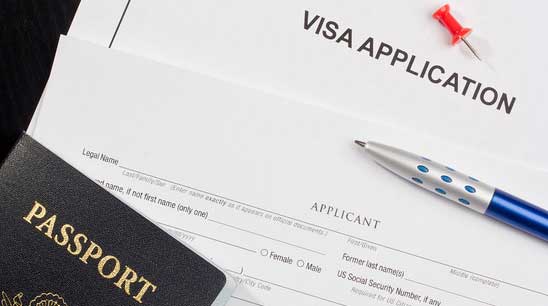On February 16, 2018, United States Citizenship and Immigration Services (USCIS) published its final Policy Memorandum entitled “Signatures on Paper Applications, Petitions, Requests, and Other Documents Filed with U.S. Citizenship and Immigration Services.” To read the full text of this final Policy Memorandum, click here.

This final policy memorandum updates and finalizes the interim memorandum that USCIS released on June 7, 2016 under the same title. While the final policy memorandum was published on the USCIS website on February 16, 2018, the new policies set forth in the memorandum do not take effect until March 18, 2018.
So why did USCIS make these changes to its signature requirements? USCIS reversed their interim memorandum’s policy, which allowed power of attorney signatures on immigration documents, because they were concerned about consistency, fraud, and program integrity.
The following are the key takeaway points from the February 16, 2018 final policy memorandum on signature requirements:
- USCIS requires a valid signature on an application, petition, request, and certain other documents filed with USCIS (“request”)[1]. Except as specifically authorized in the regulations, or this policy memorandum, or in the respective form instructions, an applicant, petitioner, or requester (“requester”) must personally sign his or her own request before filing it with USCIS.[2]
- A valid signature must be a handwritten mark or sign. USICS will not accept signatures that were created with a word processor, typewriter, stamp, auto-pen, or other similar type of device.
Who Must Sign a Request or Document Submitted to USCIS? Answer: with limited exceptions, any individual filing a request or any other document with USCIS must personally sign the request or document. Power of attorney signatures will no longer be accepted, with limited exceptions.
- Exception: If a child is under 14 years of age, a parent or legal guardian of that child may sign a request or document on behalf of that child.
- Exception: If an individual is mentally incompetent, regardless of their age, a legal guardian may sign a request for a mentally incompetent person. Note: for signatures on USCIS forms, USCIS states that “a legal guardian means a person who a proper court or public authority has designated as the applicant’s legal guardian or surrogate and who is authorized to exercise legal authority over the applicant’s affairs. If the appropriate court or public authority has given an individual this authority, USCIS considers this individual to be a “legal guardian” who may sign for the child or mentally incompetent person.”[3]
- Exception: The term “individual” excludes corporations or other legal entities as well signatures on paper applications, petitions, requests, and other documents filed with USCIS as attorneys, accredited representatives, agents, preparers, and interpreters.
Signature Requirements for corporations and other legal entities such as professional corporation, limited liability company (LLC), or limited liability partnership are allowed to file specific types of immigration requests with the USCIS (e.g., a request to classify a foreign national as an immigrant or non-immigrant for employment purposes under a specific employment based category). In such specifically delineated situations, these corporate entities are permitted to file a request with USCIS to extend the validity period of the foreign national petition for them to stay.
Pursuant to the final policy memorandum, only these people have the authority to sign such immigration documents that will be filed with USCIS. Examples of these permitted signators include the following:
- An executive officer of a corporation or P.C. with authority to act on behalf of the corporate entity and legally bind and commit the corporate entity in all matters (such as the chief executive officer, president, vice president);
- A managing member or managing partner of an LLC or LLP;
- A duly authorized partner of a partnership;
- An attorney employed in an employer-employee relationship by the corporation or other legal entity as its legal representative or as a legal representative by the corporation or other legal entity’s legal department in an employer-employee relationship (such as in- house counsel or other attorney employees);
- A person employed in an employer-employee relationship as a human resources professional within the entity’s human resources, human capital, employee relations, personnel, or similar department who is authorized to sign legal documents on behalf of the corporation or other legal entity;
- An executor or administrator of an estate;
- A trustee of a trust or a properly appointed conservator; or
- Any other person employed in an employer-employee relationship by the corporation or other legal entity who has the authority to legally bind and commit the corporation or other legal entity to the terms and conditions attached to the specific request and attestations made in the request.6 It does not matter what this person’s title is or the name of this person’s department with the corporation or other legal entity. [4]
The final policy memorandum also states that USCIS may reject a form with a faulty signature rather than offering the opportunity to fix the error as they had in the past. Accordingly, if you are working with an immigration lawyer to submit any forms, documents, or petitions to USCIS, it is imperative that your immigration attorney understands these new USCIS signature requirements.
Here at the immigration law firm of Kuck | Baxter immigration partners, our immigration attorneys have thoroughly reviewed the new USCIS signature requirements set forth in the February 18, 2018 final policy memorandum and will ensure compliance with these new signature policies so that none of our clients’ immigration documents or petitions will be denied on the basis of an improper signature. Our immigration lawyers will continue to file immigration documents and paperwork in an expeditious manner in order to minimize any inconvenience to our clients and ensure that their critical immigration documents are not rejected due to a faulty signature.
To learn more about Kuck | Baxter immigration partners or to schedule your consultation, contact us using our website’s online contact form or call us at (404) 816-8611.
[1] In this policy memorandum, USCIS uses the term “request” to refer to “any written request for an immigration benefit, service, or request for action, whether the request is submitted on an OMB-approved form or is an informal written request submitted to USCIS. The term also includes any form supplements and any other materials that require the signature of the requester. The only exception to this requirement is for naturalization applications where a “designated representative,” as defined in the Policy Manual, may sign an application on behalf of an applicant who otherwise qualifies for an oath waiver under INA 337(a) because of a physical or developmental disability or mental impairment.” See https://www.uscis.gov/sites/default/files/USCIS/Laws/Memoranda/2018/2018-02-16-PM-602-0134.1-Signatures-on-Paper-Applications-Petitions-Requests-and-Other-Documents.pdf
[2] https://www.uscis.gov/sites/default/files/USCIS/Laws/Memoranda/2018/2018-02-16-PM-602-0134.1-Signatures-on-Paper-Applications-Petitions-Requests-and-Other-Documents.pdf
[3] https://www.uscis.gov/sites/default/files/USCIS/Laws/Memoranda/2018/2018-02-16-PM-602-0134.1-Signatures-on-Paper-Applications-Petitions-Requests-and-Other-Documents.pdf
[4] https://www.uscis.gov/sites/default/files/USCIS/Laws/Memoranda/2018/2018-02-16-PM-602-0134.1-Signatures-on-Paper-Applications-Petitions-Requests-and-Other-Documents.pdf







I have a question for you.
My attorney didn’t sign on ETA 9089(Labor Certification) Page 8 for I-140 and USCIS requested RFE for attorney’s original signature after New Policy Memorandum is effective, but my attorney submitted RFE with his stamped signature. So, my petition was denied as well as Motion to reopen or consider. My attorney has a plan to re-submit Motion to reopen again with his argument, saying my original I-140 petition was submitted on May, 2017, i.e. before New Policy Memorandum is effective. In my unprofessional thinking, his intend will to be denied again because RFE(May 2018) was requested after New Memorandum.
According to your writing above, there are three exception category and one of them is about attorney in terms of “individual”
Can I understand that attorney can stamp instead of original signature? I have a hardship currently.
I look forward to listening your opinion.
Thank you,
Your attorney committed malpractice by doing this.